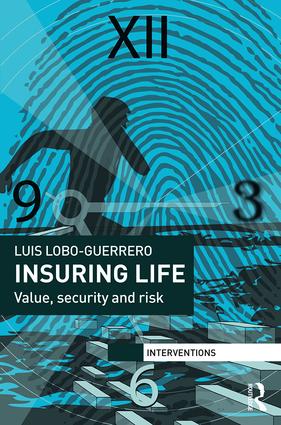This book is a contribution to the scholarly engagement with the wider problem of governing through risk and the politics of uncertainty. It takes life insurance as an empirical site from which to ask: what is the kind of governance created through insurance an instance of, and how does it contribute to the transcendence of liberalism? By making a distinction between capable life as object of insurance, and potential life as that which escapes its control, the book conducts a historical epistemological analysis of the problems of valuation, truth production, securitisation, classification, and gendering that constitute life insurance products and practices.
Insuring Life offers a critical engagement with the epistemology of life insurance to demonstrate the unnecessary and precarious character of the conditions that make this instrument of liberal governance possible. It concludes that the transcendence of liberalism relies on the technological agency of these instruments and that its challenge begins by redefining the terms under which the potential of life, if invaluable, is to be thought as event.
The book follows Insuring War as the third of a trilogy that analyses how concepts and practices of power, risk and security materialise in the form of insurance as a central instrument of governance in the liberal world. It will be of great use to scholars, researchers, and postgraduate students of political economy, critical security studies and political theory, the biopolitics of security and post-structural politics.


